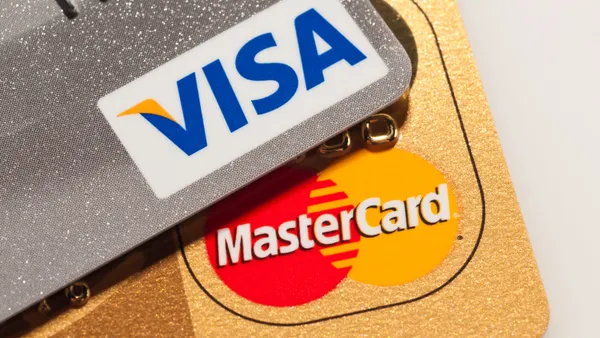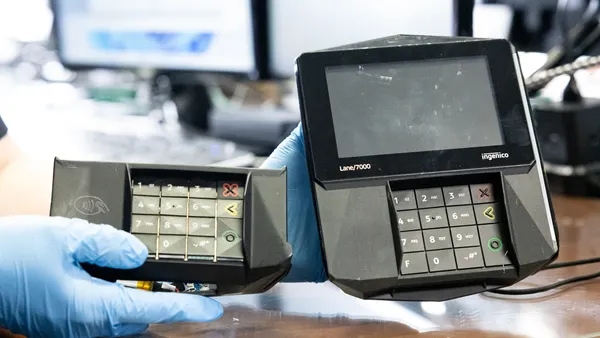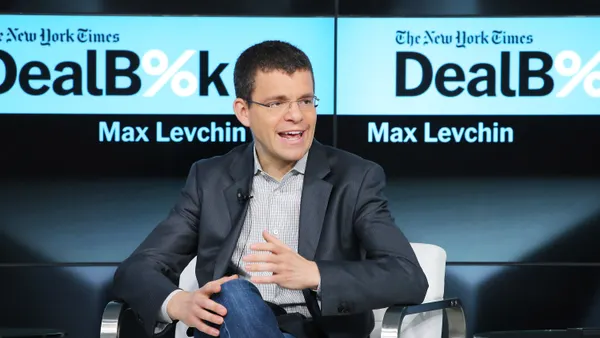Mastercard invested in Corpay’s cross-border unit last month largely because of a “synergistic” fit between the companies, Chief Financial Officer Sachin Mehra explained at an investor conference last week.
It’s unusual for one large publicly-traded company to make a minority investment in another publicly-traded company, and for just a 3% ownership stake in this case. When Mehra was asked to explain the move during JPMorgan Chase’s Global Technology, Media and Communications conference on May 13, the CFO expounded on the benefits of the tie.
Corpay handles big-dollar, account-to-account cross-border payments, mainly for corporate clients, and primarily in the U.S., Mehra explained at the JPMorgan event. By contrast, Mastercard’s expertise is in lower-value cross-border card payments globally, tapping its financial institution partner channels, he said.
Bringing those capabilities together benefits both companies, he contended. “This is very synergistic for both companies in many ways,” Mehra said, praising Corpay’s currency conversion, currency management and basic platform technology.
The announcement came just before Mastercard reported first-quarter results that showed cross-border payments volume growth slowed for the period, with that business emerging as a potential pain point for the card network. Analysts who follow the company attributed the slowdown in growth to weakness in regions including the Middle East and Africa. Purchase, New York-based Mastercard is the no. 2 U.S. card network behind Visa.
Atlanta-based Corpay provides digital payments services that allow its business customers to manage and better track their payments to other businesses. Those clients use Corpay’s cards for lots of different types of payments, but it has a sweet spot in the transportation field. As its former FleetCor Technologies name implies, Corpay’s clients use its cards to manage an array of transportation expenses, including fuel, tolls and parking.
Mehra noted during the conference that under the new pact Mastercard will be able to offer its other digital, cross-border payment services to Corpay’s corporate clients.
The two companies have been business partners for more than a decade. Now, Corpay will be the exclusive provider of currency risk management and big-ticket cross-border payments services to Mastercard’s bank customers. And Corpay will offer only Mastercard’s virtual cards to its business clients.
“As we went into that discussion, we said ‘There's a ton of stuff we do on the virtual card side, there’s more we can do on this cross-border, account-to-account payments side,’” Mehra recounted, noting that the companies tried to take a more strategic approach.
It amounted to a deeper tie where Corpay benefits from Mastercard’s broader customer base, and the card network gets access to Corpay’s big-ticket cross-border capabilities, he said.
In its initial April 29 press release, Mastercard said its bank clients and their customers will get simplified access to Corpay’s cross-border payments options, including carded and non-carded services “for all ticket sizes.”
The Corpay offering includes “servicing business payments, hedging, multi-currency collections accounts and vertical specialization,” a spokesperson for the network said last month after the transaction was disclosed.













